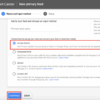Structured data for local business is crucial for online visibility and customer engagement. This guide delves into defining, implementing, and leveraging structured data formats to boost your local business’s presence in search results and improve customer experiences. From enhancing Google My Business listings to optimizing online reviews, understanding structured data is essential for success in the digital age.
We’ll explore different structured data formats like JSON-LD and Schema.org, examine their benefits for search engine optimization, and discuss how to effectively use them to improve local business listings. The guide also provides practical steps to implement structured data, tools, resources, and troubleshooting tips.
Defining Structured Data for Local Businesses
Structured data for local businesses is a crucial component for online visibility and discoverability. It’s a standardized format for presenting essential business information, enabling search engines and other online platforms to easily understand and display relevant details. This structured approach significantly enhances a business’s online presence, leading to improved search engine rankings and a better user experience.This structured data format goes beyond simply listing business information.
It involves organizing the data in a way that machines can interpret, allowing for more precise matching with user searches. This detailed approach is particularly beneficial for local businesses aiming to attract customers within their immediate geographic area.
Types of Structured Data for Local Businesses
Understanding the different types of structured data relevant to local businesses is essential for optimizing online visibility. These data points help search engines identify and categorize businesses accurately.
- Business Name: The formal name of the establishment, critical for accurate identification and search results.
- Address: The physical location of the business, essential for local searches and map integration.
- Phone Number: A direct line for customer contact, enabling quick communication and inquiries.
- Hours of Operation: Specifies the operating hours, aiding customers in scheduling appointments or visits.
- Services Offered: A list of services provided by the business, crucial for matching customer needs with specific offerings.
- Categories: Classifying the business into relevant categories (e.g., bakery, restaurant, doctor’s office) aids search engines in understanding the business’s specialization.
- Reviews and Ratings: Gathering customer feedback through reviews and ratings improves the trustworthiness and reputation of the business in the eyes of potential customers.
- Website URL: A direct link to the business’s official website, enabling customers to explore further.
Importance of Structured Data for Local Businesses
Structured data plays a significant role in enhancing the online visibility and discoverability of local businesses. This organized data improves search engine rankings, leading to increased organic traffic.
- Improved Search Engine Rankings: Search engines use structured data to understand the nature of the business, improving its ranking in relevant search results. This visibility increases opportunities for customers to find the business.
- Enhanced User Experience: Structured data enables search engines to present relevant and accurate information to users, providing a more user-friendly experience.
- Increased Customer Engagement: Accurate and complete business information provided through structured data can lead to higher customer engagement, increasing the likelihood of interactions and conversions.
Example of Structured Data for a Local Bakery
A simple example of structured data for a local bakery demonstrates the application of these principles.
| Data Element | Value |
|---|---|
| Business Name | “The Sweet Spot Bakery” |
| Address | 123 Main Street, Anytown, CA 91234 |
| Phone Number | (555) 123-4567 |
| Hours of Operation | Monday-Friday: 8:00 AM – 6:00 PM, Saturday: 9:00 AM – 5:00 PM, Sunday: Closed |
| Services Offered | Cakes, Cookies, Breads, Pastries, Catering |
| Categories | Bakery, Dessert Shop |
| Website URL | www.thesweetspotbakery.com |
Implementing Structured Data Formats
Getting your local business’s online presence noticed requires more than just a pretty website. Search engines need a clear understanding of your business to properly display it in search results. Structured data markup helps search engines understand your business’s details, improving visibility and potentially boosting your ranking. This process involves using specific formats to clearly define your business’s information.Implementing structured data involves choosing a format and using it to provide a detailed description of your business to search engines.
Different formats offer varying degrees of complexity and flexibility. Understanding the nuances of each will help you select the best approach for your website.
Available Structured Data Formats
Various structured data formats are available, each with its own advantages and disadvantages. Choosing the right format depends on the specific needs of your business and the technical expertise of your team.
- JSON-LD (JavaScript Object Notation for Linked Data): This format uses JavaScript Object Notation to represent structured data. It’s often considered the most versatile and widely supported format. JSON-LD’s flexibility allows for rich descriptions of your business, making it ideal for complex scenarios. However, it can be more complex to implement for those unfamiliar with JSON. JSON-LD’s compatibility with JavaScript also allows for dynamic updates and integration with other web technologies.
So, you’re building out structured data for your local business? That’s fantastic! Knowing how to craft effective survey questions is key to understanding your customer base and tailoring your business’s approach to be more successful. Check out survey questions that work for some great examples to help you design the perfect survey for gathering crucial insights.
Ultimately, using well-structured data will help you to optimize your business’s online presence and connect with customers in a meaningful way.
- Microdata: This format embeds structured data directly within HTML, using special attributes to define data elements. Microdata is relatively straightforward for basic information, but it can become cumbersome for extensive or complex data. Its simplicity often makes it a good choice for businesses with limited technical resources.
- Schema.org: This is a vocabulary of structured data types and properties, allowing you to markup your data using a common set of terms understood by search engines. It provides a standardized way to define various types of businesses, products, and services. Schema.org’s advantage is its standardization, which helps search engines understand your data consistently. Its use involves implementing specific tags to define various elements, including name, address, phone number, and opening hours.
The standardized approach also allows for interoperability with other websites and applications using Schema.org.
Comparing Structured Data Formats
Understanding the strengths and weaknesses of each format will help you choose the most suitable one for your local business.
| Format | Syntax | Use Cases | Advantages | Disadvantages |
|---|---|---|---|---|
| JSON-LD | Uses JavaScript Object Notation (JSON) with vocabulary extensions. | Complex business descriptions, integrations with JavaScript frameworks. | Flexible, versatile, compatible with JavaScript. | Can be complex to implement for non-technical users. |
| Microdata | Adds attributes to HTML elements to define data. | Simple business information, basic structured data. | Easy to understand and implement for basic data. | Less flexible than JSON-LD, not suitable for complex descriptions. |
| Schema.org | Uses vocabulary of predefined types and properties to mark up data. | Standardized descriptions of businesses, products, and services. | Standardized, understood by search engines, and interoperable. | Requires knowledge of the vocabulary to properly implement. |
Schema.org Example for a Restaurant
Implementing Schema.org for a restaurant involves using specific vocabulary terms to describe various aspects of the business.“`html “@context”: “https://schema.org/”, “@type”: “Restaurant”, “name”: “The Cozy Corner Cafe”, “address”: “@type”: “PostalAddress”, “streetAddress”: “123 Main St”, “addressLocality”: “Anytown”, “postalCode”: “12345”, “addressRegion”: “CA”, “addressCountry”: “US” , “telephone”: “+1-555-123-4567”, “openingHours”: “Mo-Sa 9:00-21:00”, “priceRange”: “$$$” “`
Implementing Structured Data on a Website
Implementing structured data involves integrating the chosen format into your website’s HTML. The specifics depend on the format chosen.
- Adding the structured data markup to the appropriate HTML elements: This may involve embedding JSON-LD scripts in your header or adding microdata attributes to existing HTML tags.
- Validating the markup: Use tools to ensure the structured data is formatted correctly.
- Testing with search engine tools: Check if search engines can correctly read the data.
Benefits of Structured Data for Local Businesses

Structured data isn’t just a technicality; it’s a powerful tool that significantly impacts how local businesses are found online. By providing a clear and consistent way for search engines to understand the content on a business’s website, structured data unlocks a wealth of opportunities for enhanced visibility and engagement. This streamlined information allows search engines to present more relevant results to users searching for local services.Implementing structured data formats goes beyond just filling out forms; it’s about providing search engines with the necessary context to understand your business and its offerings.
This clear communication leads to higher rankings in search results, making your business more accessible to potential customers. By organizing information effectively, you’re essentially giving search engines a detailed roadmap to your business, which translates directly to increased visibility and ultimately, more customers.
Search Engine Visibility Enhancement
Structured data significantly improves search engine visibility by providing a clear, standardized format for search engines to understand the content on your website. This standardized format allows search engines to easily extract and interpret key information about your business, leading to more accurate and comprehensive results in search engine results pages (SERPs). This increased accuracy means your business is more likely to appear in relevant searches, potentially driving more qualified leads to your website.
Improved Local Search Results
Structured data is specifically designed to enhance local search results. By including schema markup, your business’s location, hours, services, and other crucial details are highlighted. This means when users search for local businesses near them, your listing is presented in a more prominent and informative way, including features like maps and directions. Users see clear, concise information, leading to a higher click-through rate from search results to your business’s website.
Impact on Local Business Listings
Structured data significantly impacts local business listings by providing comprehensive and detailed information. Instead of generic or incomplete listings, your business listing becomes rich with details, making it more attractive to potential customers. This detailed approach to listing information makes your business more appealing and more likely to be chosen by those searching locally. For example, structured data can clearly display business hours, special offers, and customer reviews, significantly boosting the overall attractiveness of your business listing.
Examples of Improved Visibility
Numerous businesses have seen a marked increase in visibility after implementing structured data. A local bakery, for example, found its listing displayed prominently in Google Maps searches, leading to a significant surge in online orders. Similarly, a local plumber saw a substantial increase in phone calls after incorporating structured data, directly attributing the improvement to enhanced visibility in search results.
These are just a few examples of how structured data has proven to be a powerful tool for boosting local business visibility.
Positive Impacts on Local Business Visibility
| Aspect | Positive Impact |
|---|---|
| Search Engine Ranking | Higher rankings in relevant local searches, increasing organic traffic. |
| Local Search Results | More prominent and informative listings in local search results, including maps and directions. |
| Business Listings | More comprehensive and attractive listings with details like hours, services, and customer reviews. |
| Customer Engagement | Increased click-through rates from search results, driving qualified leads to the website. |
| Brand Visibility | Enhanced brand visibility and recognition in local communities. |
Using Structured Data for Local Business Listings
Structured data isn’t just for search engines; it significantly impacts how local businesses are presented on platforms like Google My Business and Yelp. By providing a clear and consistent format for information, structured data ensures accurate and comprehensive business listings, ultimately boosting discoverability and customer engagement. This detailed look at structured data’s role in local business listings clarifies its benefits and best practices.Implementing structured data in local business listings enhances the presentation of crucial information.
This leads to more accurate and user-friendly displays on platforms, resulting in improved customer experiences and a higher likelihood of attracting new clients.
Impact on Google My Business Listings
Structured data significantly impacts Google My Business listings by providing a standardized format for crucial business information. This standardized approach ensures accurate display of essential details, like business hours, services offered, and contact information. Consistent structured data also enhances the search engine’s ability to understand and categorize your business, which improves its visibility in relevant search results.
So, you’re focusing on structured data for your local business? That’s fantastic! Understanding how search engines interpret your data is key, and that’s where knowing the different types of SEO comes in handy. For example, you need to understand technical SEO, on-page SEO, and off-page SEO to ensure your local business is properly indexed and ranked. To delve deeper into these crucial areas, check out this insightful article on seo understanding the 3 types of seo.
Ultimately, well-structured data combined with a solid SEO strategy is the recipe for success in today’s digital market for local businesses.
Impact on Yelp Listings
Similar to Google My Business, structured data improves Yelp listings by providing a structured format for business details. Yelp’s algorithm utilizes structured data to better understand the business’ offerings, allowing for more precise matching to user searches. This increased precision in search results boosts the business’ visibility and accessibility to potential customers.
Examples of Enhanced Information
Structured data enhances the information displayed on platforms by providing clear and concise information. For instance, a business offering “Italian cuisine” and “catering services” will have this information clearly displayed and easily searchable, leading to more relevant searches and clicks. Structured data also allows for the inclusion of additional details, such as business hours, address, and phone number, in a standardized format, making it easier for users to find and contact the business.
Best Practices for Incorporating Structured Data
To effectively use structured data, businesses should ensure accuracy and consistency. Employing a structured data markup language, like Schema.org, is essential. Maintaining accurate and up-to-date information in the structured data markup is crucial for optimal results. Regularly verifying and updating your structured data ensures the information displayed on business listings remains current.
Strategies for Improving a Google My Business Listing
- Accurate Business Information: Precisely detailing business hours, services, and contact information in the structured data format ensures a comprehensive and reliable business profile.
- Consistent Data: Maintaining consistent information across various online platforms, including Google My Business, ensures users have a seamless experience and receive the correct information.
- High-Quality Photos: High-quality photos are integral to a strong business listing. Using structured data to describe the photos further enhances the visual appeal and information associated with the business.
- Customer Reviews: Encourage customers to leave reviews. Positive reviews build trust and can significantly improve a business’s standing on search engine results pages (SERPs).
Comparison of Structured Data Impact
| Feature | Google My Business | Yelp |
|---|---|---|
| Search Visibility | Improved visibility in local searches, driving more organic traffic. | Enhanced visibility in Yelp searches, targeting users actively searching for businesses like yours. |
| Information Accuracy | Structured data ensures accurate business information is displayed consistently, increasing user trust. | Structured data contributes to the accuracy of business details, aiding users in finding relevant businesses. |
| User Experience | Clearer, more comprehensive information enhances the user experience, leading to higher click-through rates. | Improved presentation of business information enhances user experience, improving potential customer engagement. |
Structured Data and Customer Engagement
Structured data is more than just a technical implementation; it’s a crucial component in enhancing customer engagement for local businesses. By providing clear, consistent, and machine-readable information, structured data paves the way for a more intuitive and rewarding user experience. This leads to higher customer satisfaction and ultimately, greater success for local businesses in the digital landscape.Structured data significantly improves the customer journey by offering a streamlined approach to finding and interacting with local businesses.
This translates into a positive experience for customers and ultimately, a boost in business for the local establishment.
Enhanced User Experience
Structured data directly impacts user experience by making it easier for customers to find and interact with local businesses. This streamlined approach simplifies the process of discovering businesses, understanding their offerings, and engaging with them online. Clear presentation of information leads to a more positive and efficient experience for the customer. This, in turn, encourages further interaction and engagement with the business.
Improved Search Visibility
Structured data optimizes a local business’s online presence, making it easier for potential customers to discover them through search engines. This increased visibility is critical for attracting new customers and building brand awareness. Structured data helps search engines understand the business’s information, improving search rankings and driving organic traffic.
Structured data for local businesses is crucial for online visibility. It helps search engines understand your offerings, which is vital for attracting customers. However, the real-world application of this data often depends on the specific use case, such as how affiliate networks need to leverage it to effectively promote local businesses. affiliate networks need use case. Ultimately, well-structured data translates into a stronger online presence for local businesses.
Facilitating Online Reviews and Feedback
Structured data facilitates the collection and presentation of online reviews and customer feedback. By providing a clear and consistent structure for review submissions, businesses can gain valuable insights into customer experiences. This structured approach allows for more comprehensive analysis of customer opinions, enabling businesses to identify trends and areas for improvement.
Strengthening Customer Communication
Structured data can be leveraged to improve customer communication channels. By organizing customer data in a structured format, businesses can personalize communication and improve their response time. This structured approach enables businesses to effectively segment their customer base and deliver targeted messages, resulting in a more engaging and personalized experience for the customer. For example, a business could use structured data to send targeted promotions to customers who have expressed interest in specific products or services.
Tools and Resources for Implementing Structured Data

Implementing structured data for your local business website can significantly boost your online visibility and attract more customers. This crucial step ensures search engines can easily understand and interpret the information on your site, leading to higher rankings in search results. Having the right tools and resources is key to a successful structured data implementation.Understanding the various tools and resources available can empower local businesses to effectively integrate structured data into their websites.
Choosing the appropriate tools will streamline the process, minimizing the technical hurdles and maximizing the potential benefits of structured data.
Structured Data Learning Resources
Effective implementation of structured data begins with a strong understanding of the format and its applications. Numerous online resources offer comprehensive guides and tutorials for learning about structured data. These resources often provide step-by-step instructions and practical examples, making the learning process accessible to individuals with varying technical backgrounds.
- Search Engine Journal: Offers articles and tutorials on a wide range of topics, including structured data implementation. These articles provide in-depth explanations and real-world examples to help businesses understand the practical application of structured data.
- Google’s Structured Data Testing Tool: A valuable tool directly from Google, this allows you to test your structured data markup and identify any errors. This proactive approach helps businesses ensure the accuracy and effectiveness of their structured data implementation.
- Schema.org: The definitive source for structured data vocabulary. Schema.org provides detailed documentation and examples, allowing businesses to choose the appropriate schema for their specific business type and data.
Available Tools and Platforms
Several tools and platforms simplify the process of implementing structured data on websites. These tools assist in generating the necessary code, validating its accuracy, and monitoring its effectiveness. The availability of such tools is a significant advantage for local businesses seeking to enhance their online presence.
- Schema.org Markup Generators: These tools allow users to input business information and automatically generate the necessary structured data markup. These tools significantly reduce the manual effort required to implement structured data, especially for businesses without significant technical expertise.
- WordPress Plugins: Numerous plugins for WordPress automate the process of implementing structured data. These plugins can be easily installed and configured to add structured data to website content, streamlining the implementation process.
- Google Search Console: This powerful tool provides insights into how search engines view your website. By utilizing the structured data reporting features within Search Console, businesses can identify areas for improvement and optimize their structured data implementation.
Examples of Tools for Local Businesses
Several readily available tools provide user-friendly interfaces for implementing structured data. These tools often come with features that cater to the needs of local businesses.
- Data Highlighter: A user-friendly tool specifically designed to highlight structured data markup on a website, allowing for easy identification of errors. This tool can help local businesses in the debugging and correction of structured data implementation on their website.
- Structured Data Markup Generators: These tools, like the ones available on Schema.org, provide a clear and straightforward process for generating the necessary markup. Businesses can input their information, and the tool automatically generates the appropriate code for integration into their website.
- Structured Data Validators: These tools validate the accuracy and completeness of structured data, identifying potential issues before they impact search engine visibility. These tools are vital in ensuring that structured data implementation is correctly implemented and free from errors.
Helpful Resources for Local Businesses
To effectively leverage structured data, local businesses can utilize numerous resources. These resources offer guidance and support in understanding and implementing structured data for local .
- Local Guides: Many websites provide comprehensive guides specifically focused on local , including detailed explanations of structured data implementation. These guides often include practical examples and case studies, demonstrating the value of structured data for local businesses.
- Local Forums: Engaging with local forums can provide valuable insights and support from experienced professionals and fellow business owners. Discussions and advice shared within these forums can be extremely beneficial for local businesses seeking to implement structured data.
Tools Comparison Table, Structured data for local business
This table Artikels available tools and their features, aiding local business owners in choosing the most suitable option for their needs.
| Tool | Features |
|---|---|
| Schema.org Markup Generator | Automatic markup generation, inputting business information, reducing manual effort. |
| WordPress Structured Data Plugins | Automated structured data implementation, easy integration with WordPress platforms, simplifying implementation. |
| Google Structured Data Testing Tool | Validating structured data markup, identifying errors, ensuring accuracy and effectiveness. |
| Data Highlighter | Highlighting structured data markup, facilitating easy error identification, aiding in the debugging and correction of structured data implementation. |
Troubleshooting and Common Issues
Implementing structured data for your local business website can seem daunting, but common pitfalls are often easily avoided. This section Artikels typical problems and provides practical solutions to help you navigate the process smoothly. Understanding these potential roadblocks will empower you to maintain accurate and optimized structured data markup.
Common Markup Errors
Incorrectly structured data markup can lead to Google’s inability to properly interpret the information. This often results in your business not appearing in relevant search results. Here are some common mistakes:
- Incorrect Schema Type: Using the wrong schema.org type for your business (e.g., using a “Restaurant” schema for a salon). This is a critical error that prevents Google from associating the correct data with your listing. Using the correct schema is essential for accurate indexing.
- Missing or Incorrect Data Fields: Essential fields like address, phone number, or opening hours might be missing or contain inaccurate information. Ensure all relevant fields are correctly populated with accurate data. This includes details like the correct postal code or hours of operation. Google will not display incomplete information. It is critical to have accurate and comprehensive data.
- Syntax Errors: Incorrect use of HTML tags, or incorrect use of schema.org vocabulary can also result in problems. Ensure the structured data markup is formatted precisely as Artikeld in the schema.org documentation. This prevents misinterpretations and assures proper indexing.
- Incorrect Data Type: Using an incorrect data type for a specific field (e.g., using a string instead of a date for the opening hours). Ensuring the correct data type is vital for accurate interpretation. Using a date type for opening hours, rather than a string type, is critical.
Troubleshooting Guide
Identifying and fixing errors in structured data markup requires a methodical approach. This guide Artikels common issues and their solutions.
Issue Troubleshooting Steps Error: Incorrect Schema Type Verify the schema.org type for your business. Ensure it aligns with your business’s primary offerings (e.g., restaurant, store, service). Correct the schema type to the appropriate one. Error: Missing or Incorrect Data Fields Carefully review all required data fields. Double-check that all necessary information (address, phone number, opening hours) is present and accurate. Use a data validation tool to confirm the correctness of all fields. Error: Syntax Errors Use a structured data validator tool (such as Google’s Structured Data Testing Tool). Carefully review any errors reported by the validator. Fix any syntax errors highlighted by the validator. Error: Incorrect Data Type Verify the data type for each field. Ensure you’re using the correct data type (e.g., date, text, integer) for each field as defined in the schema.org documentation. Use a validator to identify incorrect data types.
Website Implementation Issues
Implementing structured data on a website can present unique challenges.
- Incorrect Implementation Location: Ensuring structured data is embedded in the correct HTML location within the website. Placing the structured data in the appropriate part of the website’s HTML code is essential.
- Dynamic Content Issues: Implementing structured data on websites with dynamic content can require additional coding to ensure the data is correctly extracted and formatted. Use server-side scripting to handle dynamic content and ensure accurate data retrieval. This is important for dynamic websites.
- Caching Issues: If structured data is cached incorrectly, search engines might not pick up the most recent changes. Ensure your caching mechanism allows for timely updates of structured data to prevent delays in indexing.
Future Trends in Structured Data for Local Businesses
Structured data is rapidly evolving, transforming how local businesses are discovered and understood online. The increasing sophistication of search algorithms and the rise of AI-powered tools are driving significant changes in how businesses leverage structured data to improve their online presence and customer engagement. This evolution is not just about updating existing formats; it’s about integrating structured data with new technologies and approaches to deliver more meaningful results.The future of structured data for local businesses hinges on its ability to adapt to evolving search algorithms and user expectations.
Businesses that proactively embrace these changes will gain a significant competitive advantage. This includes not just updating their existing structured data but also exploring new formats and ways to present information.
Emerging Trends in Structured Data Formats
Structured data formats are becoming increasingly sophisticated, moving beyond basic schema markup to encompass more complex data models. This includes incorporating richer data types like events, product information, and reviews, offering a more detailed and comprehensive view of the business for search engines. Moreover, the trend is towards more dynamic and real-time updates, allowing businesses to reflect changes in their offerings or services instantly.
Impact on Local Business Operations
The impact of structured data on local business operations is substantial. Accurate and up-to-date structured data directly translates to higher search engine rankings, increased visibility, and more qualified leads. This translates into a more efficient acquisition of customers, with search engines able to more accurately match potential clients to businesses based on specific needs and criteria.
Evolution of Structured Data in Local Search
Local search is undergoing a significant shift, with a growing emphasis on user experience and context. Structured data is evolving to accommodate this change. This means that structured data will increasingly focus on providing detailed information, user reviews, and contextually relevant data points. This data might include location-specific information, customer reviews, and real-time availability information. For example, a restaurant’s structured data might include not only its hours but also whether it accepts reservations or offers delivery.
Influence of New Technologies on Structured Data Use
New technologies are significantly influencing the way structured data is used by local businesses. AI-powered tools can analyze structured data to provide insights into customer behavior and preferences, enabling businesses to tailor their offerings and marketing strategies more effectively. Machine learning algorithms can also predict trends and suggest improvements in a business’s structured data. For example, a local bakery might use AI to predict peak demand for specific types of pastries based on historical data, allowing them to optimize their inventory management.
Potential Future Challenges and Opportunities
While the opportunities for structured data in local business are vast, challenges remain. Ensuring data accuracy and consistency across multiple platforms is crucial, and businesses need to adapt to changes in structured data standards. The potential for misuse of structured data, such as through malicious data manipulation, presents a concern that needs to be addressed. However, opportunities also abound, with structured data offering businesses a chance to stand out from the competition and connect with customers on a more meaningful level.
For instance, businesses that utilize structured data effectively can create a more detailed, trustworthy, and user-friendly experience, setting themselves apart in local search results.
Closing Summary
In conclusion, implementing structured data for local businesses is a strategic investment that yields significant returns. By optimizing your online presence with structured data, you can improve search engine visibility, enhance customer engagement, and ultimately drive more customers to your business. This comprehensive guide has equipped you with the knowledge and tools to navigate the complexities of structured data and unlock its potential for your local business.






